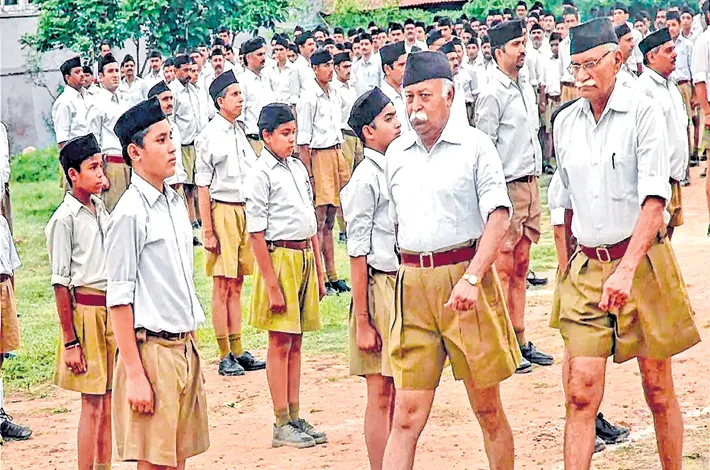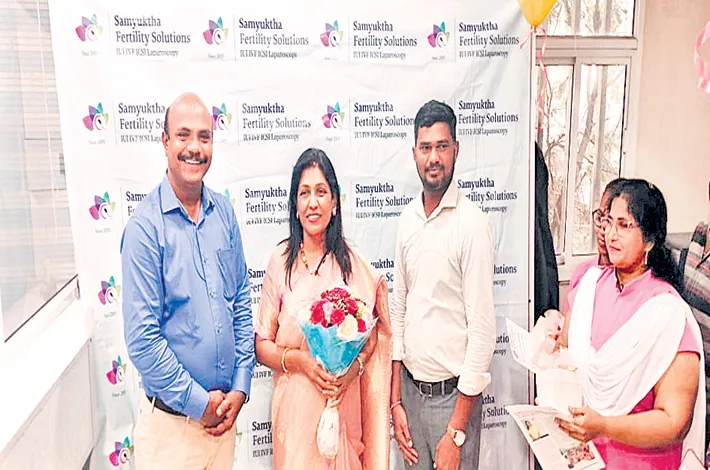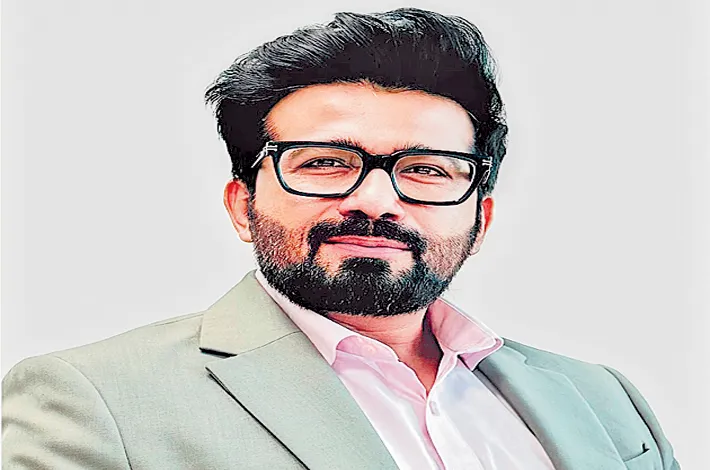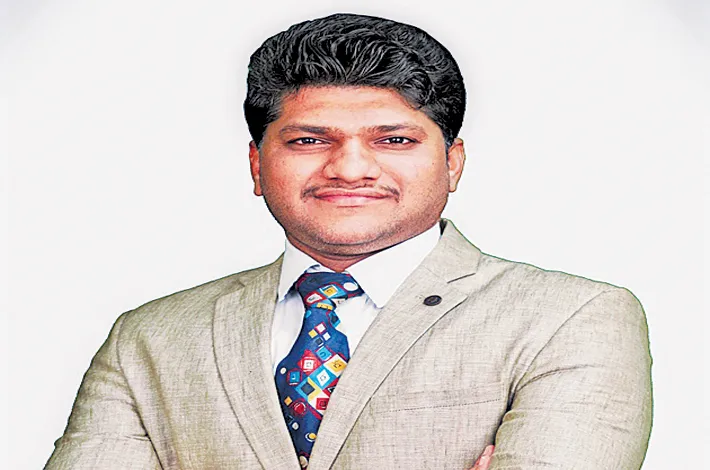The RSS needs to rethink its vision of a ‘Hindu Rashtra’
25-09-2025 12:00:00 AM

Unless the RSS modifies the three problematic concepts in its core philosophy, it will continue to divide India and not strengthen it
On August 26, 27, and 28, RSS chief Mohan Bhagwat presented the history, philosophy, vision, and future direction of the Rashtriya Swayamsevak Sangh (RSS)—a mammoth Hindu organisation dedicated to national development.
The occasion was the centenary of the RSS, and in attendance at the event at Vigyan Bhavan, New Delhi, were intellectuals, diplomats, religious leaders from other faiths, media, and people working in the NGO sector. As a parent organisation of the BJP, and with Prime Minister Narendra Modi being one of its card-holding members, the RSS and its constituents have a tremendous influence on the policies and programmes of the central government and the BJP-ruled states. As such, Bhagwat’s exposition of the RSS served the valuable purpose of helping understand it better.
Going into considerable depth, Bhagwat explained what the RSS means by ‘Hindu Rashtra’ and ‘Akhand Bharat’ and the organisation’s approach towards Indian Muslims and Christians, illegal immigrants, notably from Bangladesh, and plans to consolidate and unify Hindus and reach out to neighbouring countries.
He spoke of RSS founder Dr Keshav Baliram Hedgewar’s participation and incarceration during the freedom movement and opposition to Partition, thus addressing the criticism that the RSS did not participate in the freedom movement. RSS volunteers also joined the national struggle in opposing the Emergency imposed by prime minister Indira Gandhi in 1975. He addressed the criticism that the RSS indulged in violence and clarified the RSS’s approach to changing the names of prominent roads, towns, and cities. He claimed that the many member organisations of the Sangh Parivar were completely autonomous and not in the control of the parent organisation.
Bhagwat’s speech on the first day was preceded by a short video on the massive relief and rescue work undertaken by RSS volunteers during national disasters such as floods and earthquakes, especially during the 1970s, ’80s, and ’90s. Indeed, this work was exemplary, especially at a time when India did not have an organised disaster management mechanism. Most problematic was Bhagwat’s exposition of ‘Hindu Rashtra’.
Hindu Rashtra: Bhagwat was at pains to explain that the RSS does not envision a ‘Hindu nation’ (as in the case of the Islamic Republic of Pakistan), “because ‘Rashtra’ for us does not mean ‘nation’ but ‘state’.” He explained that India was known by its Hindu identity since ancient times, later as ‘Hindustan’, and the vast subcontinental expanse from the Himalayas to the waters of the Indian Ocean was always united in its socio-cultural ethos even though it was ruled by the Mughals for 800 years, by the British for 150 years, and by various kings and emperors who fought against one another over the centuries.
Bhagwat said, in spite of this, the people could freely move and intermingle across the subcontinent. “We cannot find a better term than ‘Hindu Rashtra’ to describe this geographical entity, and therefore we insist on the term ‘Hindu Rashtra’,” he stressed. This term, he said, was synonymous with ‘Bharatiya’, and India and the concept of Hindu Rashtra are inclusive, in which people of all faiths would be respected equally, with the same laws applying to all of them. While this sounds good to the ears, the cold fact is that the ‘Hindu Rashtra’ nomenclature is problematic. ‘Rashtra’ in common usage means ‘nation’, and ‘Hindu Rashtra’ contradicts India’s multi-religious, multi-cultural, and multi-ethnic identity. It, therefore, does not appeal to large sections of Indian society.
Akhand Bharat: The Akhand Bharat map of the RSS depicts an undivided subcontinental India stretching from Afghanistan to Myanmar. Bhagwat explained that the RSS wants to reach out to all the neighbouring nations, emphasise the common history and heritage of the subcontinent, and foster a spirit of brotherhood and cooperation for collective growth and prosperity.
Incidentally, the South Asian Association for Regional Cooperation (SAARC), which is headquartered in Nepal, speaks the same language, obviously, without the ‘Akhand Bharat’ nomenclature. Many scholars and commentators have pointed to the success of the European Union (EU) and the ASEAN (Association of South East Asian Nations) and have highlighted the wasted potential of South Asia, primarily due to the India-Pakistan rivalry. Once again, the RSS is wasting time and effort by trying to convince others to accept the ‘Akhand Bharat’ nomenclature instead of helping strengthen SAARC.
Indian Muslims: When asked about violence against Muslims indulged in by the RSS, Bhagwat demanded evidence and said there was no evidence that the RSS indulged in violence. Such was the structure of the question-and-answer session that journalists could not ask obvious follow-up questions about the demolition of the Babri Masjid and anti-Muslim and anti-Christian violence by the constituents of the Sangh Pariwar, such as the Bajrang Dal. Or, for that matter, the blatantly anti-Muslim stance of the UP government under Chief Minister Yogi Adityanath. Undoubtedly, Indian Muslims and Christians are primarily converts from the dominant religion of this land, which is Hinduism. Therefore, to expect them to accept the ‘Hindu identity’ and the Hindu Rashtra nomenclature is preposterous.
Unless the RSS modifies these three problematic concepts in its core philosophy, it will continue to divide India and not strengthen it.








